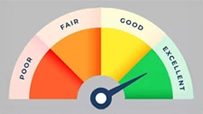Fixed Capital vs. Working Capital: Understanding the Key Differences
September 03, 2025

Did you know that nearly 30% of businesses fail due to cash flow mismanagement? One of the primary reasons behind financial struggles is the lack of clarity on capital allocation. Businesses require both fixed capital and working capital to sustain operations, expand, and remain profitable.
Understanding the difference between fixed and working capital is crucial for financial stability. While fixed capital is used for long-term investments, working capital ensures day-to-day operations run smoothly. In this blog, we’ll break down their definitions, key differences, and real-life examples to help you manage business finances effectively.
What is Fixed Capital?
Fixed capital refers to long-term investments that help businesses generate revenue over time. These assets are not consumed or sold within the operating cycle but are essential for business operations. Companies allocate fixed capital for acquiring physical assets, upgrading infrastructure, or implementing advanced technology that provides long-term value.
Examples of Fixed Capital
- Manufacturing Equipment: A car manufacturing company investing in automated robotic arms and conveyor belts to improve efficiency and production speed.
- Real Estate: A retail chain purchasing commercial properties for stores or warehouses to expand operations and ensure long-term stability.
- Technology Infrastructure: A software company investing in high-performance servers, cloud computing systems, and cybersecurity measures to enhance operational efficiency.
- Vehicles: A logistics company purchasing a fleet of delivery trucks to streamline supply chain management and reduce transportation costs.
Key Characteristics of Fixed Capital
- Long-term Investment – Fixed capital is allocated for durable assets that contribute to business growth over several years.
- Depreciation Applies – Fixed assets lose value over time due to wear and tear, requiring companies to account for depreciation in financial statements.
- Not Easily Liquidated – These assets cannot be quickly converted into cash, making fixed capital a long-term commitment.
What is Working Capital?
Working capital is the capital needed for day-to-day business operations. It represents the difference between a company’s current assets (cash, accounts receivable, inventory) and current liabilities (short-term debt, accounts payable). A healthy working capital ensures smooth business operations, timely payments to vendors and employees, and sufficient cash flow to handle unexpected expenses.
Examples of Working Capital
- Raw Materials: A clothing brand purchasing high-quality fabric and dyes to manufacture garments, ensuring continuous production.
- Salaries: Monthly payroll payments to employees, ensuring workforce motivation and productivity.
- Utility Bills: Covering electricity, internet, and water bills required for business operations, maintaining seamless workflow.
- Short-term Debt Payments: Repaying business loans or credit lines that finance immediate operational needs and prevent financial bottlenecks.
Key Characteristics of Working Capital
- Short-term in Nature – Working capital is used to cover immediate expenses and keep the business running efficiently.
- Highly Liquid – Unlike fixed capital, working capital consists of assets that can be quickly converted into cash.
- Directly Impacts Cash Flow – A positive working capital ensures smooth operations, while a deficit can lead to financial distress.
Fixed Capital vs. Working Capital: A Detailed Comparison
| Feature | Fixed Capital | Working Capital |
| Definition | Long-term investment in business assets | Funds used for daily operations |
| Timeframe | Used over several years | Used within a short-term cycle |
| Liquidity | Low liquidity | High liquidity |
| Examples | Machinery, land, office buildings | Salaries, rent, raw materials |
| Financial Impact | Supports business growth and expansion | Ensures smooth day-to-day operations |
Why Are Both Fixed and Working Capital Important for a Business?
Fixed Capital Enables Growth and Expansion
Businesses need fixed capital to invest in essential assets that provide long-term benefits, such as modernizing equipment or opening new branches.
Working Capital Ensures Business Stability
Adequate working capital ensures that businesses can pay for operational expenses like rent, wages, and supplier payments, preventing disruptions in operations.
Maintaining a Balance Between Fixed and Working Capital is Essential
A company must strike the right balance between fixed and working capital to avoid liquidity crises or underutilization of resources.
Final Thoughts
Both fixed capital and working capital play a vital role in business success. While fixed capital helps in expansion and long-term sustainability, working capital ensures smooth daily operations. Striking the right balance between the two is key to financial stability and business growth.
Take your business to the next level with Ujjivan Small Finance Bank MSME Loans. We have a host of MSME products tailored for your unique business growth needs. Additionally, we offer MSME Overdraft facilities for urgent business capital requirement. Browse through our suite of products and apply today!
Disclaimer:
The contents herein are only for informational purposes and generic in nature. The content does not amount to an offer, invitation or solicitation of any kind to buy or sell, and are not intended to create any legal rights or obligations. This information is subject to updation, completion, amendment and verification without notice. The contents herein are also subject to other product-specific terms and conditions, as well as any applicable third-party terms and conditions, for which Ujjivan Small Finance Bank assumes no responsibility or liability.
Nothing contained herein is intended to constitute financial, investment, legal, tax, or any other professional advice or opinion. Please obtain professional advice before making investment or any other decisions. Any investment decisions that may be made by the you shall be at your own sole discretion, independent analysis and evaluation of the risks involved. The use of any information set out in this document is entirely at the user’s own risk. Ujjivan Small Finance Bank Limited makes no representation or warranty, express or implied, as to the accuracy and completeness for any information herein. The Bank disclaims any and all liability for any loss or damage (direct, indirect, consequential, or otherwise) incurred by you due to use of or due to investment, product application decisions made by you on the basis of the contents herein. While the information is prepared in good faith from sources deemed reliable (including public sources), the Bank disclaims any liability with respect to accuracy of information or any error or omission or any loss or damage incurred by anyone in reliance on the contents herein, in any manner whatsoever.
To know more about Ujjivan Small Finance Bank Products Visit:"https://www.ujjivansfb.in"
All intellectual property rights, including copyrights, trademarks, and other proprietary rights, pertaining to the content and materials displayed herein, belong
to Ujjivan Small Finance Bank Limited or its licensors. Unauthorised use or misuse of any intellectual property, or other content displayed herein is strictly prohibited and the same is not intended for distribution to, or use by, any person in any jurisdiction where such distribution or use would (by reason of that person’s nationality, residence or otherwise) be contrary to law or registration or would subject Ujjivan Small Finance Bank Limited or its affiliates to any licensing or registration requirements.
FAQs
1. What is the primary difference between fixed capital and working capital?
Fixed capital is used for acquiring long-term assets that help businesses grow over time, whereas working capital covers short-term financial obligations necessary for daily operations.
2. Can a business survive without fixed capital?
Some service-based businesses, such as consulting firms, require minimal fixed capital, while industries like manufacturing and retail heavily rely on fixed capital for equipment and infrastructure.
3. Why is working capital important for businesses?
Working capital ensures that businesses have sufficient funds to manage daily expenses, maintain smooth operations, and prevent financial strain caused by delayed payments or cash shortages.
4. How do businesses calculate working capital?
Working Capital = Current Assets - Current Liabilities. A positive working capital indicates financial health, whereas a negative one may signal liquidity issues.
5. What happens if a company has negative working capital?
Negative working capital means the company lacks sufficient short-term assets to cover liabilities, which may lead to delayed payments, debt accumulation, and potential insolvency.
6. How do businesses raise fixed capital?
Companies raise fixed capital through equity investments, long-term loans, retained earnings, and government grants to finance asset acquisitions and expansion.
7. Is inventory part of fixed capital or working capital?
Inventory is part of working capital because it consists of goods or materials that are sold or used within a short period to generate revenue.
8. Can a company have too much fixed capital?
Yes, excessive fixed capital with insufficient working capital can lead to cash flow problems, making it difficult to cover operational expenses.
9. How can a company improve its working capital?
Businesses can improve working capital by optimizing inventory turnover, negotiating better payment terms with suppliers, and maintaining an efficient accounts receivable process.
10. What industries require high fixed capital investment?
Industries like automobile manufacturing, construction, telecommunications, and energy require substantial fixed capital for infrastructure, machinery, and technology investments.
Latest Blogs

APK Fraud: How One Wrong Download Could Empty Your Bank Account
May 13, 2025
Picture this. You’re sipping your evening tea when your phone rings.

Gold Loan LTV Ratio Explained (75% to 85%): What It Means for Borrowers
March 20, 2025
In June 2025, the Reserve Bank of India (RBI) introduced a significant relaxation for gold loan borrowers: the maximum Loan-to-Value (LTV) ratio for loans below ₹2.5 lakh was raised to 85%, up from the long-standing cap of 75%. Loans between ₹2.5 lakh and ₹5 lakh can now go up to 80%, while loans above ₹5 lakh continue under the 75% ceiling.

Good Debt vs Bad Debt: Learn the Difference
August 13, 2025
Every month, millions of Indians wait for the familiar debit alert, an EMI deducted from their account.

Got a Tax Refund? 5 Smart Ways to Put Your 2025 Refund to Work
August 13, 2025
For many taxpayers, there’s a unique sense of relief when a tax refund arrives.

Credit Score Not Improving? 5 Mistakes You Might Be Making
August 13, 2025
For most of us, a credit score feels like a silent judge sitting in the background of our financial lives.




